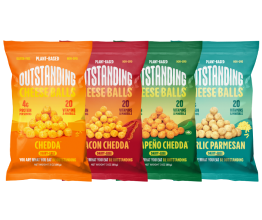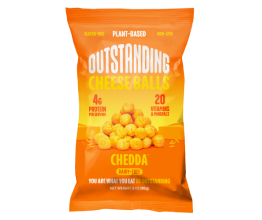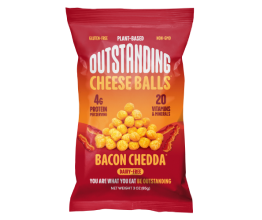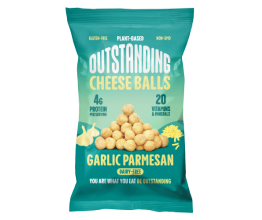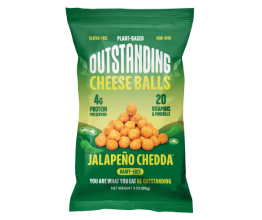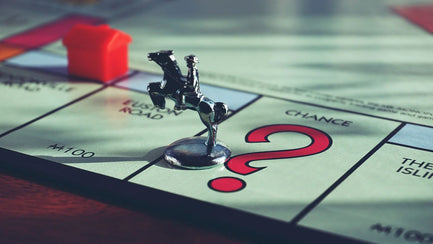Why Is Sustainability Important?
You have probably been hearing the word “sustainability” a lot lately. In recent times, it has become quite the buzzword. But do you really understand the concept of sustainability?
Today, we will be diving deep into the details of sustainability. We will cover the three core elements of sustainability as well as give you some pointers on how you can contribute to a more sustainable society by making a few easy lifestyle changes. After all, we only get one Planet Earth, so we better take care of it and all of its inhabitants, big and small.
What Does Sustainability Mean?
Sustainability describes an ecosystem, lifestyle, or community that supports itself and its surroundings. Sustainability can be thought of in terms of environmental protection, social development, or economic development. According to the UN, sustainability is development that works for people in the present day without compromising the ability of future generations to also meet their own needs—basically, making sure that there will be enough resources for their survival, too.
The general concept is the same, leaving both the human and natural systems better than you found them. If you have ever been camping, then you are probably familiar with this age-old concept.
The Three Elements Of Sustainability
Sustainability can be defined by its three core elements: environmental protection, social development, and economic development. These are often referred to as the three pillars of sustainability, and they’re global issues that we all need to take a look at.
Environmental Protection
The focus of environmental protection is to make sure that our interactions with the environment do not harm or destroy it in any way and that we’re able to live in harmony with the natural world. Think energy efficiency, water stewardship, and waste reduction (of both food waste and product waste).
For example, how do we use basic resources that come from the environment? Does the way we obtain the resources damage the source? How can we minimize our negative effects on the environment and our collective carbon footprint? What renewable resources are out there that we can use? How can we positively impact the environment or reduce greenhouse gas emissions? These are all questions you may ask yourself when thinking about environmental sustainability.
Social Development
The focus of social development is to think about sustainability in terms of how it affects other people. For example, how can we ensure that the natural resources we need are available to future generations? How will this affect the quality of life of people nearby? Will it affect or worsen global poverty and hunger levels? Is this dangerous to the health of people? How can we contribute to better standards of education globally?
These are all questions you might consider when thinking about the social aspect of sustainability. You can even consider educating people about sustainability as an act of positive social development.
Economic Development
Economic development is the most controversial element of sustainability, and it largely concerns sustainable business practices. Economic sustainability focuses on how we as a community invest in economic development that serves the people and protects the planet, working with integrity and not just towards economic growth. There needs to be a focus on both the stakeholders and the people impacted, and part of that means providing incentives for businesses to actually want to follow these guidelines.
In a way, it is kind of a combination of the first two elements of sustainability. For example, suppose you are assessing the sustainability of a business model. In that case, you have to think of both the employees of a business and the effect that the business has on the planet and community. For example, are the supply chains creating large amounts of waste and carbon emissions? Are they helping to build healthy communities, or are people negatively impacted?
Why Sustainability Is Important
Sustainability is a hot topic at the moment for a reason. We are at a point in the earth’s history where we have been using the earth’s resources without thinking about sustainability for too long. This is leading to climate change and endangering millions of animal species. We have to find a way to collectively come together and address sustainability so that we do not kill the earth and can continue to exist as a species.
The bottom line is that we are already seeing the effects of climate change. We will eventually run out of fossil fuels, damage the atmosphere beyond repair, and wipe out millions of animal species. That is unless we make a change as a society and start creating a more sustainable system. It is not too late to make a positive change for the future of the earth, but it will take a lot of effort to work towards sustainable development on both a worldwide and individual scale.
Recycling
One of the easiest ways for you to work on an individual level towards sustainability is by recycling. You’ve probably heard the phrase, “reduce, reuse, recycle.” It is a super easy phrase to remember that reminds us of ways we can lead a more sustainable life within our own homes.
Reduce the amount of waste you create. Whenever possible, you should avoid single-use items, items with excessive packaging, and items you don’t need. Reduce your waste by buying items with less packaging over items with more packaging. For example, it may be tempting to buy the pre-chopped watermelon at the grocery store, but it comes in a wasteful plastic package. Instead, buy a whole watermelon and chop it up yourself at home.
Reuse items whenever you can by avoiding the consumption of single-use items. Instead of using a new plastic straw each time you have a drink, try using reusable straws that you can wash. Try a reusable tote instead of plastic bags, or try using reusable cloths instead of paper towels. Making small changes like this will reduce the amount of waste you personally generate.
Recycle everything you can. Read up on how to recycle properly so that you can recycle as much as possible. Most cities already have programs in place to help you recycle your waste. All you need to do is separate out your recyclables into a separate bin from your trash and then place them in the proper recycling dumpster. This allows the raw materials from your recyclables to get re-made into new items instead of discarded for good.
Growing Your Own Fruits And Veggies
If you have a green thumb, then you should start or join a community garden. This can be a great social activity that generates local produce and allows you to get in touch with the environment on a personal level. It is also a great way to get involved with your community and the sustainability efforts that they take part in. The best part is; eventually, you will be able to eat the literal fruits of your labor. How cool is that?
Sustainable Shopping
We’ve already touched on this a little bit, but another way to live a sustainable life is to make shopping decisions with the environment in mind. Remember the watermelon example? You should always try and buy the item with the least amount of packaging.
Another great example of sustainable shopping is choosing durable clothing items that are made with care and will last a long time. Unfortunately, fast fashion has a terrible impact on the environment, and although the clothing is cheap, is it really worth the environmental cost?
Switching To A Plant-Based Diet
One easy way to live a more sustainable life is to adopt a plant-based diet. According to several projections, the shift people are making from omnivore to herbivore is associated with the greatest reductions in greenhouse-gas emissions. In other words, a plant-based diet isn’t just good for you; it’s good for the planet too!
Vegan Or Vegetarian?
If you are currently a meat eater, then you may not know the difference between vegan and vegetarian—but it can be a serious step towards protecting the earth for the next generation. Vegetarians do not eat meat but may choose to eat dairy, eggs, or honey. A vegan does not use any animal products or byproducts in any part of their life. Vegans do not eat meat, dairy, eggs, or honey, nor do they wear leather, wool, or suede. From a meat-eater’s perspective, this may seem quite limiting, but as any vegan will proudly tell you, it’s not as hard as you think.
It is actually relatively easy to transition to a plant-based diet; all you need to do is slowly replace meat products with meat alternatives or vegetables. Plant-based diets are healthier, more environmentally sustainable, and are kinder to animals. That’s a sustainability win!
Sustainable Plant-Based Snacks
One great way to make the transition to a plant-based diet is by replacing your favorite meat-centric snacks with more nutritious plant-based snacks. That’s why we have created Pig Out Pigless Pork Rinds. They have all the crunch and flavor of a pork rind but are made with sustainable plant-based ingredients instead of cute little piggies.
Pig Out Pigless Pork Rinds
Our delicious Pigless Pork Rinds come in five different delicious flavors: Original, Hella Hot, Salt & Vinegar, Texas BBQ, and Nacho Cheese. The best part is they are healthier than “traditional” pork rinds with 75% less sodium and 67% less saturated fat, but they taste even better. Each bag is packaged with certified plastic neutral packaging making them sustainable from the bag itself to the delicious pork rinds within.
Eat the entire bag of these tasty Pigless Pork Rinds without any guilt because they are an eco-friendly choice, a healthy choice, and a super tasty choice. Which flavor are you going to try first?
Wrap It Up
Now that you know a bit more about sustainability, you can work to live a more sustainable, modern way of life and invest in our common future. Remember to recycle, eat less meat, and pig out on Outstanding Food’s tasty Pigless Pork Rinds. It’s better for you, the animals, and the earth!
Sources:
Recycling 101: Figuring Out What to Recycle and How | Food Print
